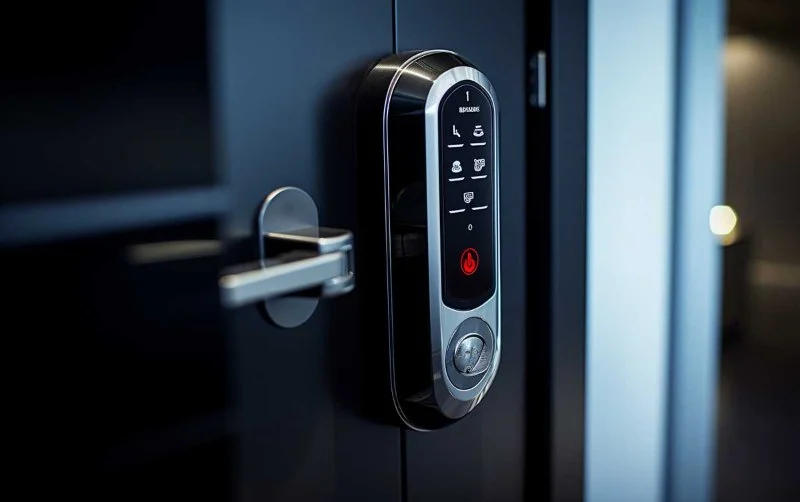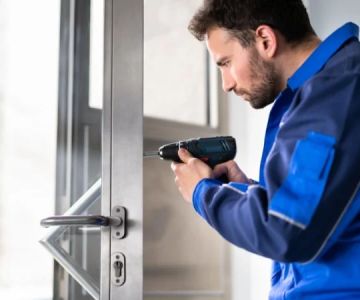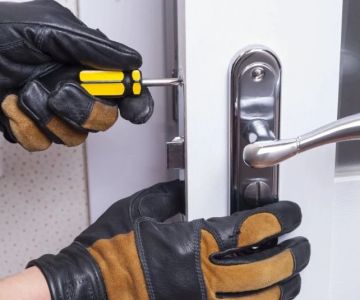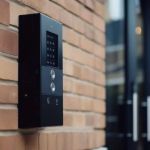
How to Maintain High-Security Locks for Maximum Protection
- 1- Understanding High-Security Locks
- 2- The Importance of Maintaining High-Security Locks
- 3- Key Steps to Maintain High-Security Locks
- 4- Common Mistakes to Avoid in Lock Maintenance
- 5- Locksmith Finder Recommendations
1. Understanding High-Security Locks
High-security locks are specially designed to provide enhanced protection for homes, businesses, and valuables. Unlike traditional locks, high-security locks are made with advanced features that make them more resistant to tampering, picking, and forced entry. These locks often include features such as reinforced materials, anti-drill plates, and patented key control systems, which ensure that only authorized individuals can duplicate keys or access your property.
2. The Importance of Maintaining High-Security Locks
Regular maintenance of high-security locks is essential for maintaining the integrity of your security system. Even the most advanced lock can become vulnerable if not properly cared for. Over time, wear and tear can affect the functionality of locks, potentially leaving your home or business exposed to security risks. Regular maintenance helps to ensure that your locks continue to perform optimally, providing maximum protection and peace of mind.
Why Regular Maintenance Matters
Neglecting the maintenance of high-security locks can result in several issues, including rust, stuck key mechanisms, misalignment, and even complete failure of the lock to function properly. Regular checks and adjustments help prevent these issues before they compromise the security of your property. Additionally, high-security locks often come with manufacturer warranties that may require regular maintenance to remain valid.
3. Key Steps to Maintain High-Security Locks
Maintaining high-security locks requires a few simple steps that can be performed by the property owner or with the help of a professional locksmith. Here are the key steps to keep your locks in top condition:
1. Regular Cleaning
One of the easiest and most important maintenance steps is regular cleaning of your locks. Dust, dirt, and grime can accumulate over time and cause the internal mechanisms of the lock to malfunction. Use a soft cloth to wipe down the exterior of the lock regularly. For the internal mechanisms, use a silicone-based lubricant (avoid oil-based lubricants as they can attract dust) to keep the pins and tumblers functioning smoothly.
2. Lubrication
Lock lubrication is crucial to ensure smooth operation. Over time, a lack of lubrication can cause the key to become hard to turn or the lock to jam. Apply a small amount of graphite or silicone-based lubricant to the keyway and insert the key several times to distribute the lubricant evenly. Avoid over-lubricating, as excess lubricant can attract dust and debris, which can clog the lock mechanism.
3. Inspecting for Damage or Wear
Regularly inspect your high-security locks for signs of damage or wear. Look for any visible cracks, rust, or loose parts that may affect the lock’s effectiveness. If you notice any issues, contact a professional locksmith immediately to assess and repair the damage. Early detection of problems can save you from having to replace the entire lock system later on.
4. Testing the Lock Mechanism
Periodically test the operation of your high-security locks. Ensure that the keys turn smoothly, the deadbolts fully engage, and that the lock functions correctly. If you notice any resistance or difficulty in turning the key, it could be an indication that the lock needs attention. A professional locksmith can help adjust or realign the lock mechanism as needed.
4. Common Mistakes to Avoid in Lock Maintenance
While maintaining high-security locks is important, there are some common mistakes that homeowners and business owners often make. Avoiding these mistakes will help ensure your locks remain in optimal condition:
1. Using the Wrong Lubricant
One of the most common mistakes is using the wrong lubricant. Oil-based lubricants, such as WD-40, can leave a sticky residue that attracts dirt and grime, potentially clogging the lock. Stick to graphite or silicone-based lubricants that are specifically designed for locks to ensure smooth operation without the risk of attracting debris.
2. Ignoring Small Issues
Small issues, such as a sticky key or a lock that doesn’t turn smoothly, should never be ignored. These issues may seem minor but can lead to larger problems if not addressed promptly. Regular inspections and addressing problems early on can save you time and money in the long run.
3. Over-Lubricating
While lubrication is essential, over-lubricating can create more harm than good. Excess lubricant can attract dust, dirt, and debris, leading to a build-up that interferes with the lock’s operation. Apply a small amount of lubricant and wipe away any excess to prevent clogging the lock mechanism.
5. Locksmith Finder Recommendations
If you’re unsure about maintaining or repairing your high-security locks, it’s always a good idea to contact a professional locksmith. Locksmith Finder is a trusted platform that connects you with experienced locksmiths who specialize in high-security lock installation and maintenance. Whether you need regular upkeep, lock repairs, or a complete lock replacement, Locksmith Finder can help you find a reputable professional in your area.









 KeyMe Locksmiths4.0 (137 reviews)
KeyMe Locksmiths4.0 (137 reviews) Minute Key4.0 (4 reviews)
Minute Key4.0 (4 reviews) JK Locksmith Co4.0 (106 reviews)
JK Locksmith Co4.0 (106 reviews) Ashley Safe & Security4.0 (20 reviews)
Ashley Safe & Security4.0 (20 reviews) Minute Key4.0 (1 reviews)
Minute Key4.0 (1 reviews) KeyMe Locksmiths4.0 (10 reviews)
KeyMe Locksmiths4.0 (10 reviews) The Benefits of Installing an Intercom System in Your Home
The Benefits of Installing an Intercom System in Your Home How to Protect Your Home With Motion-Activated Smart Locks
How to Protect Your Home With Motion-Activated Smart Locks How to Safely Install a Biometric Lock for Maximum Protection
How to Safely Install a Biometric Lock for Maximum Protection How to Secure Sliding Glass Doors With Smart Locks and Deadbolts
How to Secure Sliding Glass Doors With Smart Locks and Deadbolts How to Choose the Best Locksmith for Your Business Security: Essential Tips
How to Choose the Best Locksmith for Your Business Security: Essential Tips The Importance of Installing a Security Screen Door in Your Home | Locksmith Finder
The Importance of Installing a Security Screen Door in Your Home | Locksmith Finder